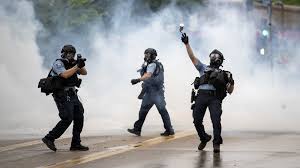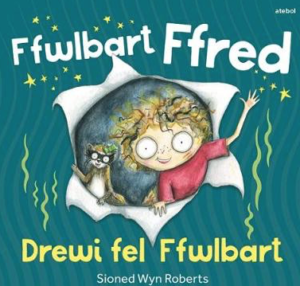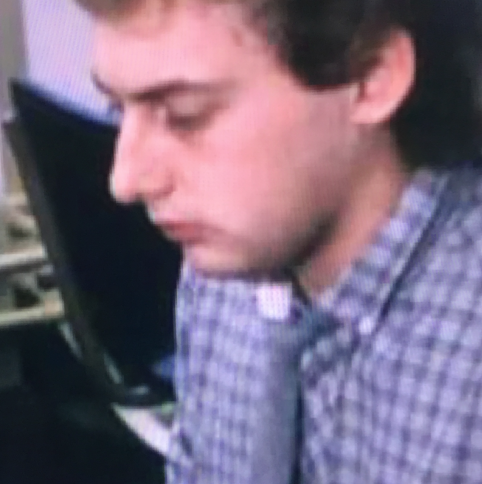- Childish politics - 11th July 2025
- Dead unlucky - 10th July 2025
- Difficult access - 9th July 2025

On The Eye our Editor Phil Parry has described how he was helped to break into the South Wales Echo office car when he was a cub reporter, recalled his early career as a journalist, the importance of experience in the job, and making clear that the ‘calls’ to emergency services as well as court cases are central to any media operation.
He has also explored how poorly paid most journalism is when trainee reporters had to live in squalid flats, the vital role of expenses, and about one of his most important stories on the now-scrapped 53 year-old BBC Cymru Wales (BBC CW) TV Current Affairs series, Week In Week Out (WIWO), which won an award even after it was axed, long after his career really took off.

Phil has explained too how crucial it is actually to speak to people, the virtue of speed as well as accuracy, why knowledge of ‘history’ is vital, how certain material was removed from TV Current Affairs programmes when secret cameras had to be used, and some of those he has interviewed.
After disclosing why investigative journalism is needed now more than ever although others have different opinions, and how information from trusted sources is crucial at this time of crisis, here he looks at the dangers facing journalists.

Journalism is a dangerous business, and today’s events in America make this fact all too obvious.
When I was investigating a particularly sensitive issue for a programme in the network Current Affairs BBC Television Panorama series, my house was wired for intruders, with panic buttons at the bedside, a security expert was called in to give advice on my movements, and my car number plate was blurred out in all shots.
Over the years I have knocked on the doors of countless crooked business people, bent police officers and cheating politicians.
But for all the ‘door steps’ I have undertaken, I learned to take a step back in case the person behind the door opened it and came out swinging!
I am glad to say the targets of my investigations invariably went for the camera next to me!
Investigative journalism is always a troubling (indeed frightening) occupation, but the riots now in the US have thrown the spotlight on the problems for news reporters too, who are there simply trying to tell us what’s happening.

Dozens of reporters covering the anti-racism protests after the killing of the unarmed black man George Floyd that have rocked the US, were apparently targeted by security forces using tear gas, rubber bullets and pepper spray.
In many cases, the reporters have said they were attacked despite showing clear press credentials.
Such assaults “are an unacceptable attempt to intimidate (reporters)“, said the Committee to Protect Journalists, a New York-based lobbying group.


Attacks on journalists carried out by protesters have also been reported.
The arrest of a CNN news crew live on air on Friday in Minneapolis, first drew global attention to how law enforcement authorities in the city were treating reporters covering the protests.
On Tuesday, Australian Prime Minister Scott Morrison asked his embassy in Washington to look into the use of force by police against an Australian news crew as officers dispersed protesters there the previous day.

It came after dozens of attacks on journalists and media crews across America over the weekend were reported on social media.
In total the US Press Freedom Tracker, a non-profit project, says it is examining more than 100 “press freedom violations” at protests.
About 90 cases involve attacks.
In other parts of the world life for a journalist has meant a constant threat, not simply at times of crisis, and the attacks appear to be rising.
In Russia a special website is devoted to the numbers that have been killed for simply doing their jobs.

Sometimes the persecution has official backing.
In the summer, Vladimir Putin signed a law that will allow Russia to declare journalists and bloggers as “foreign agents” in a move that critics say will allow the Kremlin to target government critics.
Under the vaguely worded law, Russians and foreigners who work with the media or distribute their content and receive money from abroad would be declared foreign agents, potentially exposing journalists, their sources, or even those who share material on social networks to foreign agent status.
When news of the arrest of one Russian reporter – Ivan Golunov – broke late in the morning of June 7 last year, the editors at his publication said they had no doubts it was connected to a secret investigation he was working on at the time.
The Independent newspaper said he was investigating “a trail scattered with big bucks, blood and bones (linking) top officers in the FSB, Russia’s security agency, to dodgy provincial banking elites and mafia groups controlling the funeral industry”.

Even in the (relatively) stable United Kingdom there is cause for alarm.
The Chief Reporter for the Mail, the local newspaper at Barrow-in-Furness in Cumbria, Amy Fenton, was forced to flee her home after receiving a torrent of insults and threats when she reported a local court case.
Police said there was a ‘credible risk to her life and that of her child’.
 Her report was about a 19-year-old woman from the town, who had been charged with lying about being abused (her name was later taken off the article due to the volume of abuse Ms Fenton was receiving).
Her report was about a 19-year-old woman from the town, who had been charged with lying about being abused (her name was later taken off the article due to the volume of abuse Ms Fenton was receiving).
So all journalists – including those who work on local papers – are under threat as never before, and the awful events in America now have highlighted this simple, terrible, fact.
We’re only trying to do our jobs!
Tomorrow – the appalling abuse Phil has suffered on social media, and why knowing the libel laws is crucial for journalists.
The memories of his astonishing 36-year award-winning career in journalism (including the dangers he has faced) as he was gripped by the incurable neurological condition Hereditary Spastic Paraplegia (HSP), have been released in a major book ‘A GOOD STORY’. Order the book now!

If you need something to keep the children entertained during these uncertain times (in Welsh) try Ffwlbart Ffred about the amusing stories of Ffred and his pet.








